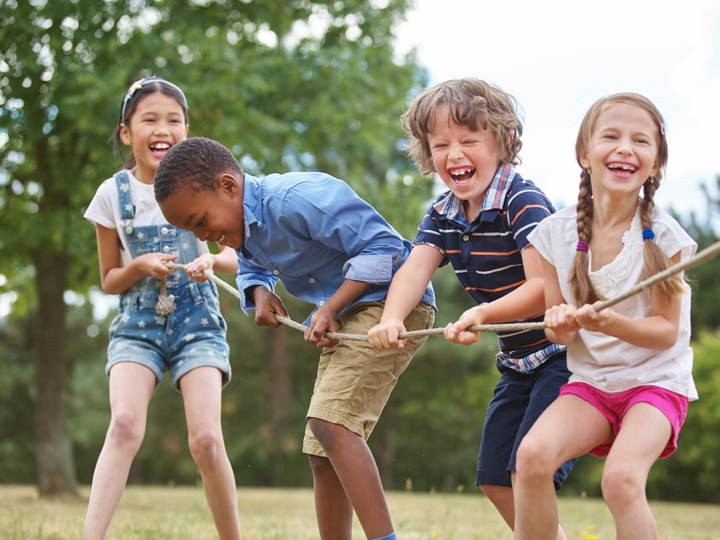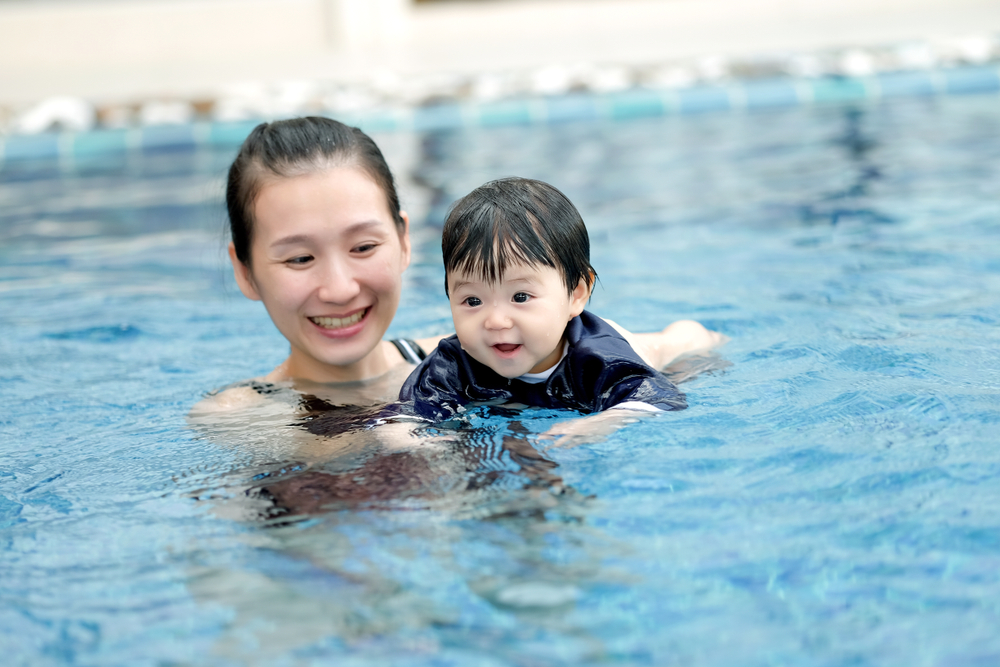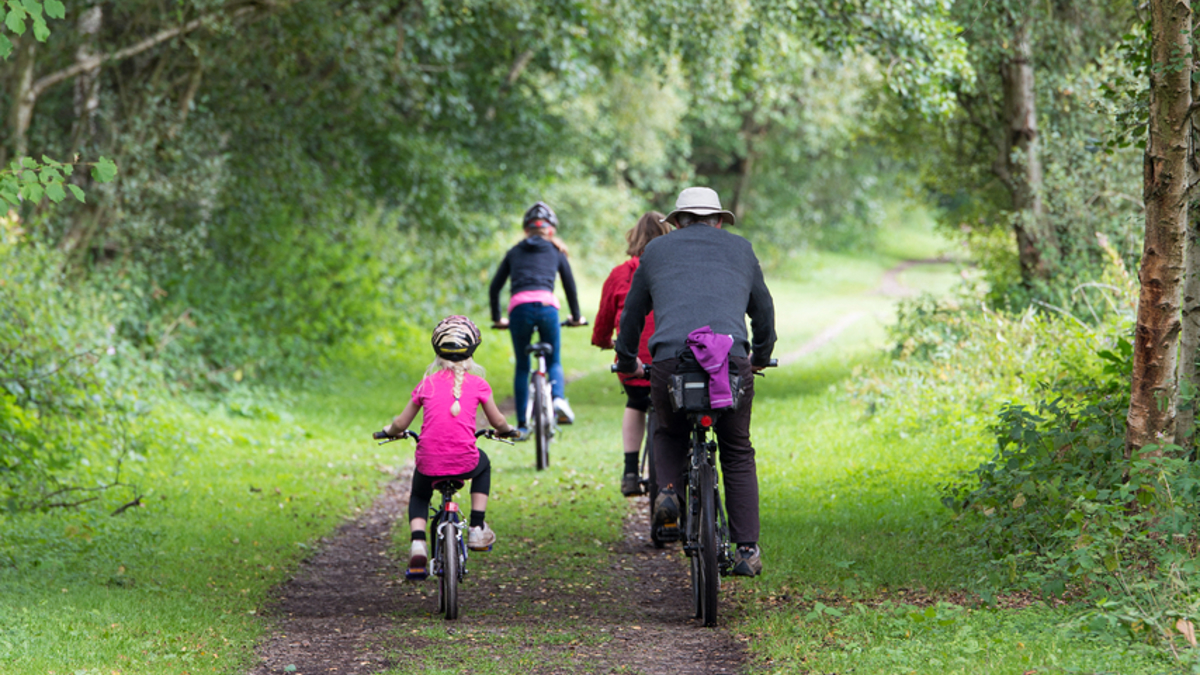Keeping babies, children and teenagers active
- 0-1 Years
- 1-5 Years
- 5-11 Years
- 11-19 Years
- SEND
- Moving and being active

Just like food and water, being active is one of the most important things for healthy growth and development in babies, toddlers, children and teenagers. It helps to build strong bones and muscles, maintain a healthy weight and boost their confidence.
Explore the topics on this page:
Ideas to keep children active
There are lots of different ways to keep children active depending on their age and ability. Try to encourage your child to find ways of being active that they enjoy. This will help to keep them motivated.
Try not to exercise too close to a child’s bedtime. Doing so may increase their energy levels and they may find it harder to sleep.
Allowing babies to be active helps promote heathy growth and development. You can encourage your baby to be active by:
- grasping, pulling and pushing things
- moving their head, body and limbs
- crawling
- playing outdoors with them
- tummy time
- swimming
If you do take your baby swimming check the water is an appropriate temperature and be mindful of germs and hygiene. Read more about vaccinations and swimming.

It is recommended that children under 5 are physically active for at least 180 minutes every day. This can be spread throughout the day. Being active does not just include exercising. General day to day movement counts as being active. There are lots of simple ways your child can be active, including:
- going for a walk
- running around in the garden
- splashing in the bath
- climbing on an outdoor play area at the park
- swimming
If your child is afraid of swimming, start slowly and make it a joint activity. This will also help you to bond.
Getting outside and being active can help boost your child's mental as well as physical health. Encourage your child to play outside with friends and family. You can look for free activities in your local area such as treasure trails, nature trails, parks or woods. Simply walking to the shops, park or school is also an easy and simple way to get moving outdoors.
If your toddler or child often has a lot of energy, it can be tiring trying to keep up with them. Try to get outside every day where possible. Taking them to a park where they can run around is a great way to help use up their energy.
Even on a rainy day there are lots of ways to keep your child active indoors:
- Have a dance competition and try and see who can come up with the best dance moves.
- Play hide and seek by hiding an item in your house and let your child try to find it.
- Play follow the leader, by each taking turns to pick a movement and then everyone else has to copy.
Take a look at these free indoor activities for kids for more ideas.
Read more about physical activity for children under 5 years old.
It is recommended that children and young people aim for at least 60 minutes of physical activity a day. This should be moderate or vigorous intensity. It can be done in smaller chunks, broken up throughout the day.
Moderate activity is movement that raises your heart rate and increases your breathing. They should still be able to hold a conversation. With vigorous activity they should find conversation challenging.
Many children and young people spend time watching TV or being on a mobile phone or laptop. It's important to encourage your child to take regular movement breaks and find a balance between screen time and physical activity. Being active not only supports your child's physical health, but it can also help them to be social and engage with friends and family. This benefits their mental health as well.
Your child or young person may be interested in joining a gym. Most gyms will allow a child into their gym with a parent from 12 year olds. Gyms often allow children over the age of 14 to go on their own. Some gyms will have special memberships or may make allowances in some cases. But physical activity doesn’t just mean participating in a sports club or going to a gym. There are lots of free ways to keep children and young people active. Examples of exercise that children and young people can do include:
- walking to school or to a friend’s house
- jumping, running and catching
- football and tennis
- skipping
- cycling
- skateboarding or rollerblading
- physical education at school
- downloading a free fitness app and doing a home workout
Read more about physical activity guidelines for children and young people.

Sensory walks can also be a great way to keep your child or young person active. Simple movement can be a powerful tool if your child is feeling anxious, especially for neurodivergent children. For example, if your child is worried about going to school, try doing a sensory walk on the way. Read more about sensory walks.

Vitamin D
Your child needs vitamin D to keep their bones, teeth and muscles healthy. Getting outside can help increase vitamin D levels. A small number of foods also contain vitamin D. Read more about how much vitamin D to give your child.
Motivating children to exercise
Not all children enjoy the idea of exercise and it can be hard to persuade them. But physical activity doesn't just have to be exercise or sport, it also includes general movement. You can walk to the shops with them, or take the stairs with them rather than the lift or escalator.
You can also try encouraging them to find activities they enjoy. This way they will be more motivated and it won’t be a chore. Think of their interests and find something they like to do. It might be something with animals, fitness video games, dancing or gardening.
Some children may be self-conscious about exercising. Try encouraging them to do activities that make them feel comfortable. Walking the dog or walking to school is a great form of exercise. Or, they can watch fitness studio exercise videos for classes they can do at home.
It may be easier to motivate your child to be active if you act as a role model. You could try starting a new hobby or sport that you can do together. For example, playing football, a bike ride, walking the dog together or playing a game at the park. Try setting up a routine for your family to schedule physical activity into your days.
Conversations about weight
Don’t be afraid to talk to your child or young person about their weight. Weight and keeping active can be a sensitive topic, so approach conversations gently. Allow your child space to express their thoughts and feelings. Work together to come up with physical activities they will enjoy.
Read more about children's weight for advice on conversations about weight.

Balancing homework, screen time and physical activity
A lot of activities that children and young people engage in involve sitting down. This includes being in a pushchair, doing homework, watching TV or playing video games. Sitting for long periods of time can be a risk to their health.
Movement breaks are a great way to move more and break up the time spent sitting. They also work as a preventative measure to stop frustration and loss of focus. For young children, these breaks can be discreet, like asking them to take a cup to the table. Other simple ideas include making a drink or going to the toilet.
You can also try limiting screen time or setting times in the day where screens are not allowed. Instead, encourage your child to engage in other activities.
Need more specific support for your child?
If your child needs more help or has additional needs, you can visit our specific section for extra support.
Last reviewed: 1 November, 2023
